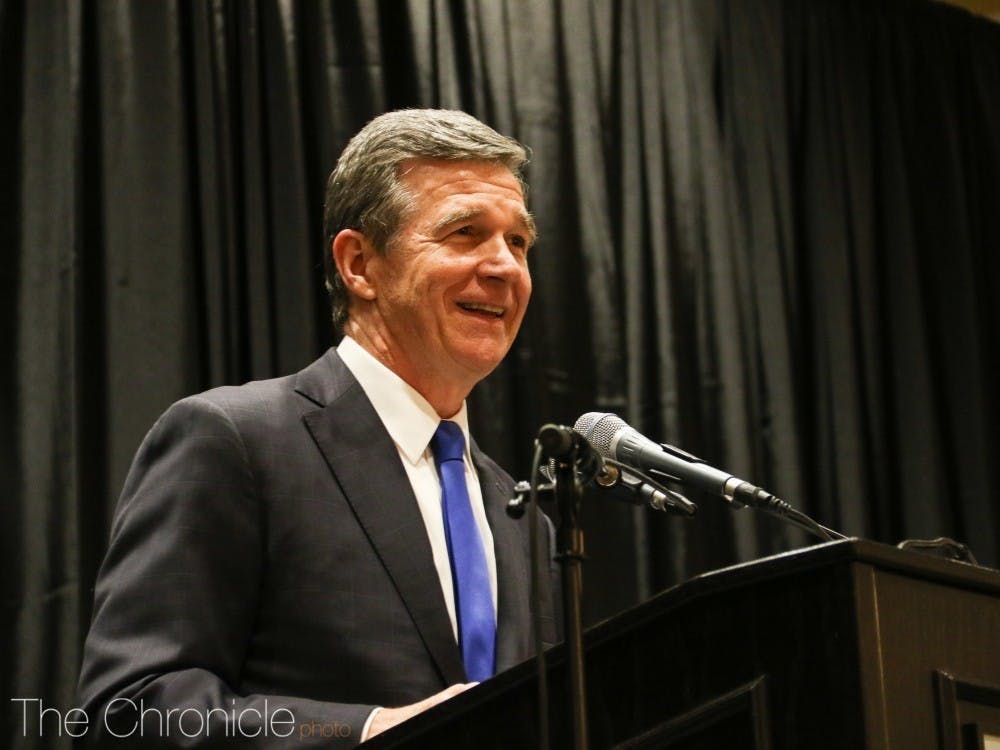North Carolina Gov. Roy Cooper has withdrawn from consideration for Vice President Kamala Harris’s running mate, according to a Monday New York Times report.
Cooper informed Harris’s team Monday that he will not remain in the running for the Democratic vice-presidential nominee. Spokespeople for Harris’s campaign declined to comment.
“I strongly support Vice President Harris’[s] campaign for president. I know she’s going to win and I was honored to be considered for the role,” Cooper wrote in a Monday evening statement posted on his X account. “This just wasn’t the right time for North Carolina and for me to potentially be on a national ticket.”
Multiple reports had placed Cooper near the top of Harris’s list of prospective running mates. After his withdrawal, the short list consists of Minnesota Gov. Tim Walz, Kentucky Gov. Andy Beshear, Pennsylvania Gov. Josh Shapiro, Arizona Sen. Mark Kelly and Transportation Secretary Pete Buttigieg.
Although the Harris campaign is currently in the process of vetting around a dozen Democrats for the spot, two people familiar with the proceedings said the list had been narrowed to five contenders.
Cooper is currently serving his second and final term as North Carolina’s governor, a position he has held since January 2017. He is set to be replaced Jan. 1, 2025 — the current front-runners for his successor are N.C. Attorney General Josh Stein, a Democrat, and N.C. Lt. Gov. Mark Robinson, a Republican.
Although he is term-limited and would be available to take up the vice presidential gauntlet in January, the fact that he remains in active service as North Carolina’s governor until then has proved a drawback for Cooper. Many Democrats have raised concerns that Cooper would need to leave the state frequently to campaign for Harris, which could leave Robinson — known for his often inflammatory right-wing remarks — in charge. However, the extent to which Robinson could effect any significant change remains somewhat ambiguous.
Cooper, 67, was expected to give Harris a boost in securing North Carolina’s 16 electoral college votes if he were selected for the spot. He would also have brought a long history of electoral success in a politically diverse state to the ticket, having never lost an election after first entering politics in 1987 as a state legislator.
In addition to hailing from a battleground state, Cooper also fit the bill of a white, male politician — something many Democrats have speculated will be necessary to “balance out” Harris’s historic position as prospectively the second Black person, first woman and first person of South Asian descent to occupy the Oval Office, should she be elected in November.
Harris is set to be confirmed as the Democratic Party’s nominee Aug. 7 by a virtual vote of Democratic National Convention delegates, and she is expected to name her pick for vice president before then. Her running mate may also be confirmed during the online voting process, though delegates have until the in-person convention — which will take place Aug. 19-22 in Chicago — to make their decision.
This is a developing story. It was updated Sunday evening with a statement from Cooper.
Get The Chronicle straight to your inbox
Sign up for our weekly newsletter. Cancel at any time.

Zoe Kolenovsky is a Trinity junior and news editor of The Chronicle's 120th volume.

